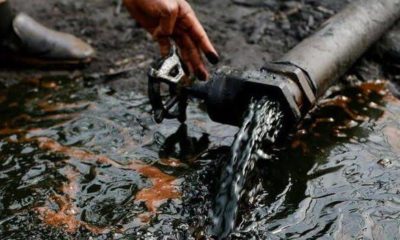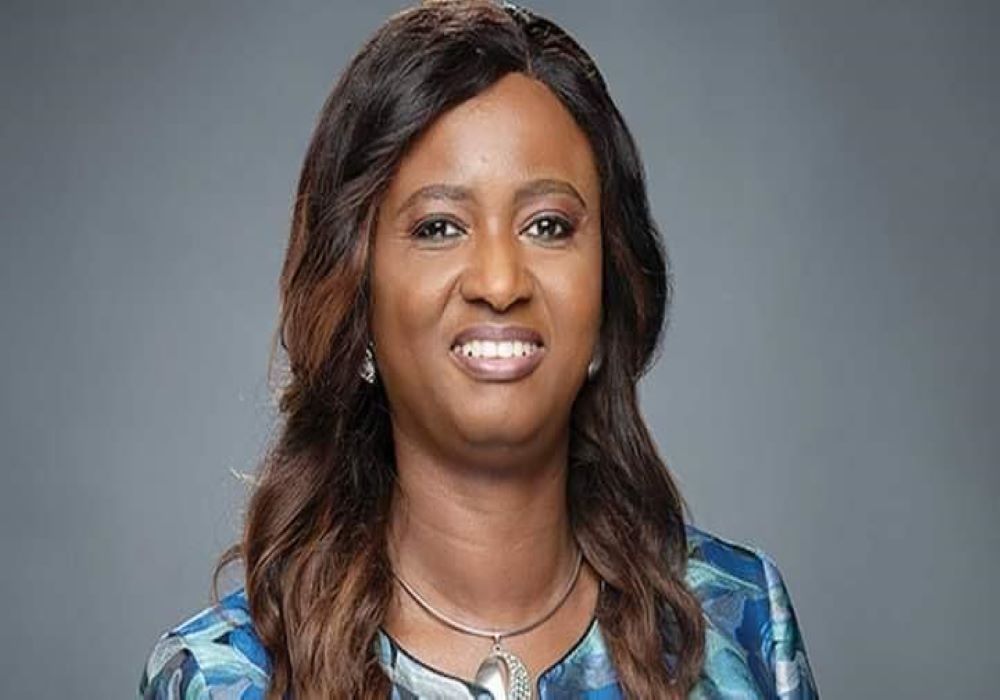Finance
Shell business summit attracts 270 Nigerian experts, diaspora on oil and gas opportunities

By Yemie adeoye
Lagos-Shell Nigeria Exploration and Production Company of Nigeria Ltd (SNEPCo) hosted a business summit in Aberdeen, September 12, at which over 270 personnel representing Nigerian companies within and outside the country explored opportunities to repatriate skills and experience to the oil and gas industry back home. The forum, christened The Global Nigerian is the third in Europe’s oil and gas hub, and had the theme Networking and Collaboration as a tool for national Development and Growth.
 SNEPCo Managing Director Tony Attah, said in an address. “When, in 2013, we set out with the initiative for local companies to collaborate with Nigerian experts in Aberdeen on opportunities and challenges in the Nigeria oil and gas industry, we knew this would be a game changer. Today, we can say that the game changer is beginning to take shape as Nigerians have started returning home to set up businesses.”
SNEPCo Managing Director Tony Attah, said in an address. “When, in 2013, we set out with the initiative for local companies to collaborate with Nigerian experts in Aberdeen on opportunities and challenges in the Nigeria oil and gas industry, we knew this would be a game changer. Today, we can say that the game changer is beginning to take shape as Nigerians have started returning home to set up businesses.”
A representative of the Nigerian High Commission, Mr. Hassan Hassan agreed: “This is the right time for our experts based abroad to return home to make a contribution and be part of the success story.” The Executive Secretary of the Nigerian Content Development and Monitoring Board (NCDMB), Mr. Denzil Kentebe commended Shell on both The Global Nigerian and Partnership Facilitation Programme and confirmed the board’s continuing support for both initiatives.
In a presentation on procedures for potential contractors in the oil and gas sector in Nigeria, the Deputy Manager, Reservoir Management and Evaluation, JV oil operations, at the Nigerian National Petroleum Investment and Management Services (NAPIMS), Mrs. Martina Atuchi told the experts: “We are inviting you to be part of the leading economy in Africa with a lot of untapped hydrocarbon resources.”
General Manager, Nigerian Content Development, Shell Nigeria, Chiedu Oba gave a progress report on the decisions of The Global Nigerian since the first business summit in Aberdeen in 2013. He said several Nigerians had returned home to establish businesses in the oil and gas sector, while networking had continued on a collaboration portal which recorded more than 12,000 visitors every month by the 60 registered companies and users.
The participants agreed that the return of a significant number of Nigerian oil and gas professionals could make a ‘game changing’ impact on the efficient delivery of many opportunities that exist in the upstream, mid-stream and downstream sectors. They also suggested the need for low interest rates to boost the growth of the companies.
The Global Nigerian 2015 was enthusiastically supported by government and industry leaders including representatives from Nigeria’s leading oil and gas trade organisation PETAN and UK Trade and Investment (UKTI).
Shell companies have continued to support Nigerian companies in the execution of contracts in their operations. In 2014 alone, 90% of the contracts valued at $1.9bn was awarded to Nigerian.
Business
Nigeria pays US$4.9 billion on petrol subsidy in 2024- NNPCL
It was however noted by Biztellers.com.ng, that although subsidy is back in effect, the main reason for that is the increasingly weak state of the Naira and the country’s extreme dependence on products importation. Also unlike the previous subsidy era, where several oil marketers were getting free subsidy refunds for unverified product importation, this subsidy era is witnessing only one importer, the NNPCL, which in effect is the sole receiver of government subsidies.
Yemie ADEOYE
INSPITE of the official position of the Nigerian government that the controversial petrol subsidy is gone for good as announced by the President on assumption of office, the state owned Nigerian National Petroleum Corporation Limited, NNPCL has disclosed that petrol subsidy is still fully operational in Nigeria, although, under a different identity.
Umar Ajiya, Chief Financial Officer at the NNPCL, disclosed that it cost the company a staggering N7.8 trillion (US$4.9) to cover this price gap in the first seven months of 2024.
Rather than simply referring to these claims as subsidies, he stated that the company is merely managing the price difference in petrol imports on behalf of the federation, stressing that this should not be misconstrued as a return to subsidy payments.
![]() This revelation has reignited discussions on whether the NNPC is indirectly offering subsidies, a concept typically defined as selling a product below its cost price.
This revelation has reignited discussions on whether the NNPC is indirectly offering subsidies, a concept typically defined as selling a product below its cost price.
Documents reviewed by Biztellers.com.ng showed that the term “subsidy” was used extensively in official correspondence between the NNPCL and the presidency, particularly in reference to the “shortfall.”
Recall that President Bola Tinubu reportedly approved NNPC’s request to utilize the 2023 final dividends due to the federation to offset these costs.
However, during a media briefing on Monday about the company’s 2023 audited financial statements, Ajiya refuted claims that the NNPC is involved in any subsidy scheme.
Ajiya further disclosed that the Nigerian government owes the NNPC N7.8 trillion ($4.9 billion) in subsidy-related debts for the period from January to July 2024.
In furtherance of his clarification to the News Agency of Nigeria (NAN), Ajiya insisted that no subsidy payments have been made to any marketer in the last nine years, citing the NNPC’s role as the sole importer of petrol under supply contracts.
He said, “In the last eight to nine years, NNPC Ltd. has not paid anyone a dime as a subsidy; no kobo has been disbursed by NNPC Ltd. in the name of subsidy. No marketer has received any payment from us for subsidy.”
“What has been happening is that we have been importing PMS, which has been landing at a specific cost price, and the government tells us to sell it at half price. So the difference between the landing price and that half price is a shortfall.
“And the deal is between the Federation and NNPC Ltd., to reconcile, sometimes they give us money, so there is no money exchanging hands with any marketer in the name of subsidy.”
Ajiya remained silent on how much of the $4.9 billion could have been remitted to the federation account if the NNPC had not been covering the “shortfall.”
It was however noted by Biztellers.com.ng, that although subsidy is back in effect, the main reason for that is the increasingly weak state of the Naira and the country’s extreme dependence on products importation. Also unlike the previous subsidy era, where several oil marketers were getting free subsidy refunds for unverified product importation, this subsidy era is witnessing only one importer, the NNPCL, which in effect is the sole receiver of government subsidies.
Banking
CBN Denies Currency Devaluation

The Central Bank of Nigeria (CBN) has refuted claims of devaluing the.
Earlier reports suggested that the CBN had devalued the Naira, lowering its exchange rate from N631 to the dollar, compared to the previous day’s rate of N461.60 at the Importers and Exporters (I&E) window.
However, the Central Bank of Nigeria (CBN) released a statement on Thursday through its Acting Head of Corporate Communications, Dr. Isa Abdulmumin, categorizing the report as false information.
In the statement titled ‘CBN Has Not Devalued The Naira’, he said the attention of the apex bank was drawn to the news report by an Abuja based newspaper edition of June 1, 2023, titled “CB Devalues Naira To 630/51”.
However, the CBN stated categorically that the news report was replete with outright FALSEHOODS and destabilizing innuendos, ‘reflecting potentially willful ignorance of the said medium as to the workings of the Nigerian Foreign Exchange Market.’
“For the avoidance of doubt, the exchange rate at the Investors’ & Exporters (I&E) window traded this morning (June 1, 2023) at N465/USS1 and has been stable around this rate for a while.
“The public is hereby advised to ignore the news report by Daily Trust in its entirety, as it is speculative and calculated at causing panic in the market,” the CBN spokesman added.
He, therefore, advised media practitioners to verify their facts from the Central Bank of Nigeria before publishing in order not to misinform the public.
Banking
BREAKING: CBN Increases Interest Rate By 0.5%

The interest rate in Nigeria has been raised to 18.5 percent, up by 0.5 percent, from 18 percent where it was pegged in March 2023.
The Central Banks of Nigeria’s (CBN) Monetary Policy Committee (MPC) resolved to this effect at its third meeting of 2023 in Abuja, on Wednesday.
Governor, CBN, Godwin Emefiele, made the disclosure in the communiqué of the MPC’s meeting, thereafter.
While engaging the media at the end of the two-day meeting, Emefiele, said the committee voted to keep the asymmetric corridor at +100 and -700 basis points around the MPR.
In the view of the MPC, rising inflation rate is traceable to the high energy cost and challenges around the supply chain, among others, which lie outside the corridors of the CBN.
Emefiele said, “The current trend in price development would continue to be monitored by the bank with greater collaboration with fiscal authority to address the drivers of inflation.”
Biztellers reports that the CBN had effected six consecutive interest rate increases, which has seen the rate move from 11.5 percent in March 2022 to 18.5 percent in May 2023.




















